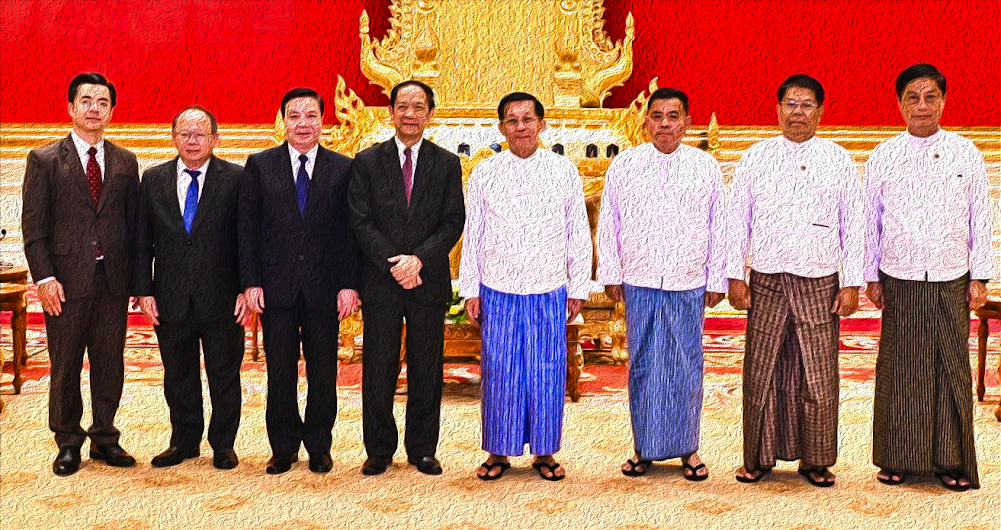Myanmar Spring Chronicle – January 10, 2024 by MoeMaKa Media:
Shifting Territorial Control and ASEAN’s Diplomatic Role
In a significant turn of events, the United Wa State Army has officially assumed control of Hopang and Panlong, marking an expansion of Wa-controlled territories in Myanmar. The handover ceremony, presided over by the Military Council, formalized the transfer of administrative authority to the Wa State government. These townships, previously self-governing regions under the 2008 constitution, had been administered by the military government since the collapse of the Communist Party of Burma in 1989. However, recent developments during Operation 1027 saw the MNDAA capturing and ceding control of these areas to the Wa armed forces.
The Military Council’s inability to counteract this transfer amid ongoing losses in various cities and camps underscores its weakened position and political vulnerability. Analysts suggest that, under different circumstances, the mainland government might have swiftly retaliated against such territorial takeovers. However, with the Military Council grappling with numerous setbacks, it lacks the capacity to oppose this transfer and publicly denounce it politically.
The United Wa State Army and the United Wa State Party have effectively navigated the current armed conflicts, especially during Operation 1027 in northern Shan State. While not directly participating in the military operations, they are believed to have supported allied armed groups by providing weapons, ammunition, and forces donning uniforms distinct from the United Wa State Army. Observers note the shared interests between the Wa government and the Northern Alliance in this operation.
Political analysts perceive these developments as reflective of a Myanmar at risk of fragmentation. The traditional centralizing force of military rule is weakening, providing ethnic groups and armed factions with an opportunity to assert their autonomy. The notion of a “union” or “federal union” seems feeble in uniting regions eager to establish their independence.
In another diplomatic move, Laos, set to assume the rotating chairmanship of ASEAN in 2024, has appointed a special envoy to address Myanmar affairs. The envoy’s swift visit to Myanmar signals a proactive approach within the first week of the new year. Indonesia, the previous chair in 2023, had adopted a Silent Diplomacy approach, holding separate discussions with relevant organizations on Myanmar’s political crisis and armed conflicts.
Laos, closely aligned with China, may seek diplomatic assistance from China to navigate the complex Myanmar issue on behalf of ASEAN. Given the Military Council’s precarious position, it is conceivable that it granted permission for Laos’ special envoy to visit at this crucial juncture. While Laos may not wield the same influence as regional powerhouses like Thailand and Indonesia, its diplomatic initiatives will be closely watched to gauge the evolving dynamics within ASEAN and the regional response to Myanmar’s unfolding situation.

